detail profile li li hua
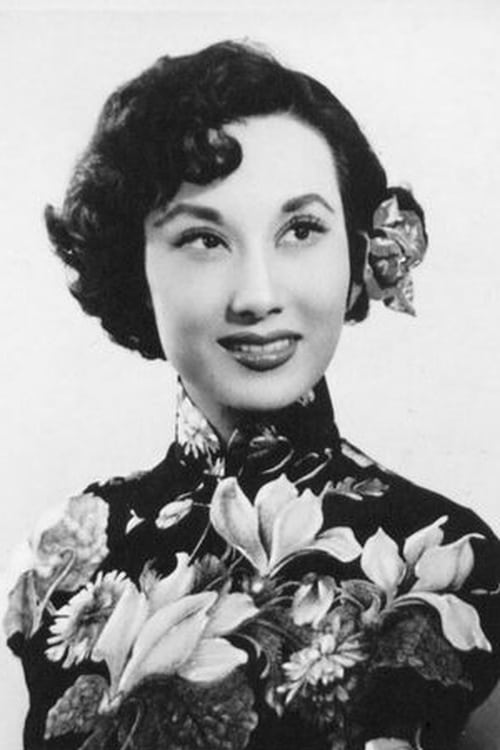
Li Li-Hua
李丽华
atau dikenal sebagai
Riwayat Hidup
Li Li-hua (Chinese: 李麗華; 17 July 1924 – 19 March 2017) was a Chinese actress, better known as an actress from the Shaw Brothers Studio.
In 1957, Li married Hong Kong actor and director Yan Jun (嚴俊) (December 17, 1917 – August 18, 1980).
Info Pribadi
Peran Yang Di Mainkan Li Li-Hua
 Three young martial arts brothers played...
Three young martial arts brothers played...Boxer Rebellion 1976
Three young martial arts brothers, played by Chi Kuan-chun, Alexander Fu Sheng and Leung Kar-yan, go in search of fellow patriots dissatisfied with Imperialist foreigners and wind up joining a rising sect of the Boxers, led by an opportunistic conman. Named as such for their use of martial arts, these boxers are revolutionaries who believe that spirits protect their bodies from foreign guns. They even dupe the Empress Dowager, who gives them her royal blessing to fight the foreigners.
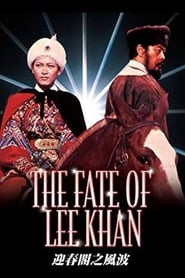 Lee Khan a high official under...
Lee Khan a high official under...The Fate of Lee Khan 1973
Lee Khan, a high official under Mongolian Emperor Yuan of the Yuan dynasty procures the battle map of the Chinese rebel Chu Yuan-Chang's army. Rebel spies, aided by treachery within Khan's ranks, strive to corner him in an inn.
 Directed by some of most well...
Directed by some of most well...Four Moods 1970
Directed by some of most well known Chinese-language directors of the time, the portmanteau film Four Moods was an attempt to alleviate Li Han-hsiang’s financial troubles during the late 1960s. Arguably one of his best works, King Hu’s short Anger is an adaptation of the famous Peking opera San Cha Kou; set to opera instrumentation and stylishly shot, the film deftly captures the tense showdown between political schemers, avengers and vagabonds inside an inn. Li Han-hsiang’s Happiness, inspired by the Strange Tales of Liaozhai, tells a tale of reprieve for a kind-hearted ghost, while Pai Ching-Jui’s Joy and Lee Hsing’s Sadness both explore the fateful encounters between mortal men and ghostly women.
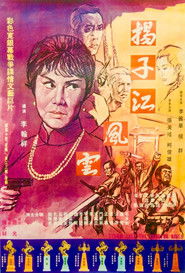 Storm over the Yangtze River tells...
Storm over the Yangtze River tells...Storm Over the Yangtse River 1969
Storm over the Yangtze River tells the true story of undercover intelligence agent "Yangtze Number One" and his colleagues in Jianli County of Hubei Province, who risk their lives to carry out the "Dead Bridge Plan" to secure the "Yangtze 180 Blockade". Li Lihua gives an iconic performance as a strong and charming agent of an intelligence unit, engaging in a risky mission to save her unit chief-cum-lover, who is regarded as a traitor but actually is a double-dealing agent against the Japanese occupation. The film garnered four awards at the 1969 Golden Horse Awards, including Best Leading Actor and Best Leading Actress.
 Experienced heroine Li LiHua plays a...
Experienced heroine Li LiHua plays a...Rape of the Sword 1967
Experienced heroine Li Li-Hua plays a swordswoman out to reclaim her murdered husband's "Green Sword," the sharpest blade in the world. The lovely Li Ching plays the role of Li Li-hua's student, who must take up the fight when her teacher falters.
 With her elegant classic persona Li...
With her elegant classic persona Li...The Goddess of Mercy 1967
With her elegant classic persona, Li Li-hua was the ideal performer for period aristocratic and imperial roles. The Goddess Of Mercy is a good example of her strong empathy and noble presence. The youngest daughter of a brutal king, the princess openly disapproves of the floggings and cruel treatment her royal family heaps on the peasants. As a result, the heartless king turns on his own daughter forcing her into exile.
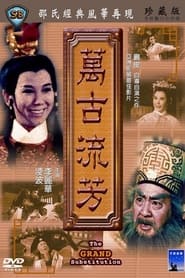 With China under control of a...
With China under control of a...The Grand Substitution 1965
With China under control of a weak Emperor, two officials compete to steer the future destiny of the land. Chiu believes the people are the future of China, while the diabolical Tu wishes to grind the people beneath an iron heel. Tu decides to take out Chiu's family, but one lone infant escapes.
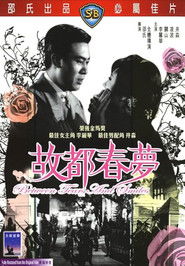 Fan Chiasoo is a kindhearted student...
Fan Chiasoo is a kindhearted student...Between Tears and Smiles 1964
Fan Chia-soo is a kind-hearted student whose heart is captured by the sweet song of Shen Feng-hsien. However, he is not the only one who has eyes for Shen. The General's henchmen are also determined to present the songstress to their superior as a gift. Fan received help from an unexpected quarter to save the woman he loves.
 Based on one particular storyline from...
Based on one particular storyline from...Three Sinners 1963
Based on one particular storyline from The Water Margin, Three Sinners weaves an intriguing story of romance, treachery, and death, all within the context of the traditional Huangmei Opera. Yan Jun casts his real-life wife, the elegant Li Li Hua, star of such Shaw Brothers films as The Goddess of Mercy and Vermillion Door, as one of the title characters, a woman who finds herself in the middle of a stormy love triangle involving her controlling husband (director Yan Jun serving double duty in a starring role) and a passionate lover (Chen Yan Yan).
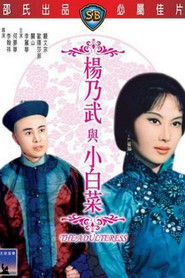 The noted actress Li Lihua star...
The noted actress Li Lihua star...The Adulteress 1963
The noted actress Li Li-hua, star of more than sixty films since 1947, beautifully portrays the drugged, then disgraced wife of a peddler in the waning days of the Ching Dynasty. To make matters worse, she’s soon framed for her husband’s murder by her rapist - the son of the local magistrate! And even that isn’t the end of her woes. It’s best to have a box of tissues nearby as two expert directors ratchet up the emotional suspense in this consummate tearjerker.
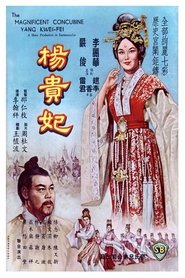 Perhaps the most notorious concubine in...
Perhaps the most notorious concubine in...The Magnificent Concubine 1962
Perhaps the most notorious concubine in Chinese history, Yang Guifei set a pudgy standard of beauty in her days of glory during the Tang dynasty. The Emperor Minghuang was so besotted with the woman that when An Lushan stages his rebellion against the empire, the ruler takes Yang Guifei along with his imperial entourage in an escape to the mountainous area of modern-day Sichuan, and sanctuary of sorts. But the concubine had roused the jealousy of the court and unfortunately for her and to the great sorrow of the king, her brother and others among the king's retainers demanded she be strangled to death while they were still in the mountains. This is the story told in this interesting Taiwanese adaptation by director Li Han-hsiang (Li Hanxiang).
 American pilot Cliff Brandon fighting the...
American pilot Cliff Brandon fighting the...China Doll 1958
American pilot Cliff Brandon, fighting the Japanese in China, finds himself the unintentional "owner" of a Chinese housekeeper, Shu-Jen. The unlikely couple falls in love and marries, but not without tragedy brought on by the war.
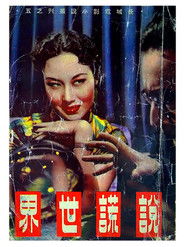 As China falls into hyperinflation following...
As China falls into hyperinflation following...Awful Truth 1950
As China falls into hyperinflation following the end of the war, people fought tooth and nail to get their hands on the only reliable currencies in the world: gold and American dollars. This is a story that shows how seven bars and two thousand US dollars bring together an interesting mix of characters: an opportunistic manager, a materialistic courtesan, a con artist posing as a commissioner of the Treasury, a white-collar worker who will do anything for a promotion, a man who specialises in conning women, a father who marries off his daughter for money and a sorcerer who fakes his magic. In this dog-eat-dog world, the only truth is that everyone is lying for his own gain. Playing the courtesan who longs to be part of high society, Li Lihua steals the film with a feisty performance opposite the amusing Yan Jun, whose con artist character has a tendency to flirt with lyrics from Peking operas.
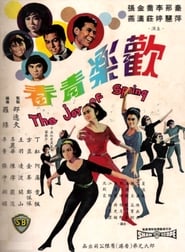 Hong Kong musical directed by Lo...
Hong Kong musical directed by Lo...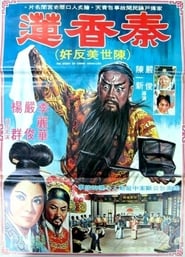 The Story of Qin XiangLian is...
The Story of Qin XiangLian is...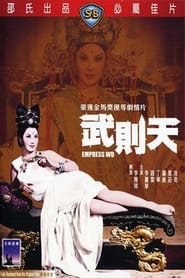 The renowned Li Li Hua plays...
The renowned Li Li Hua plays...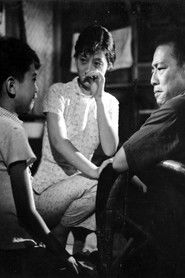 Long unemployed and stonebroke Shen Jiaguang...
Long unemployed and stonebroke Shen Jiaguang... A behind the scenes story of...
A behind the scenes story of...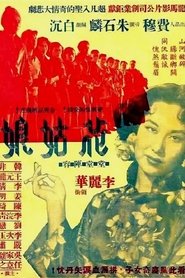 A Chinese drama
A Chinese drama